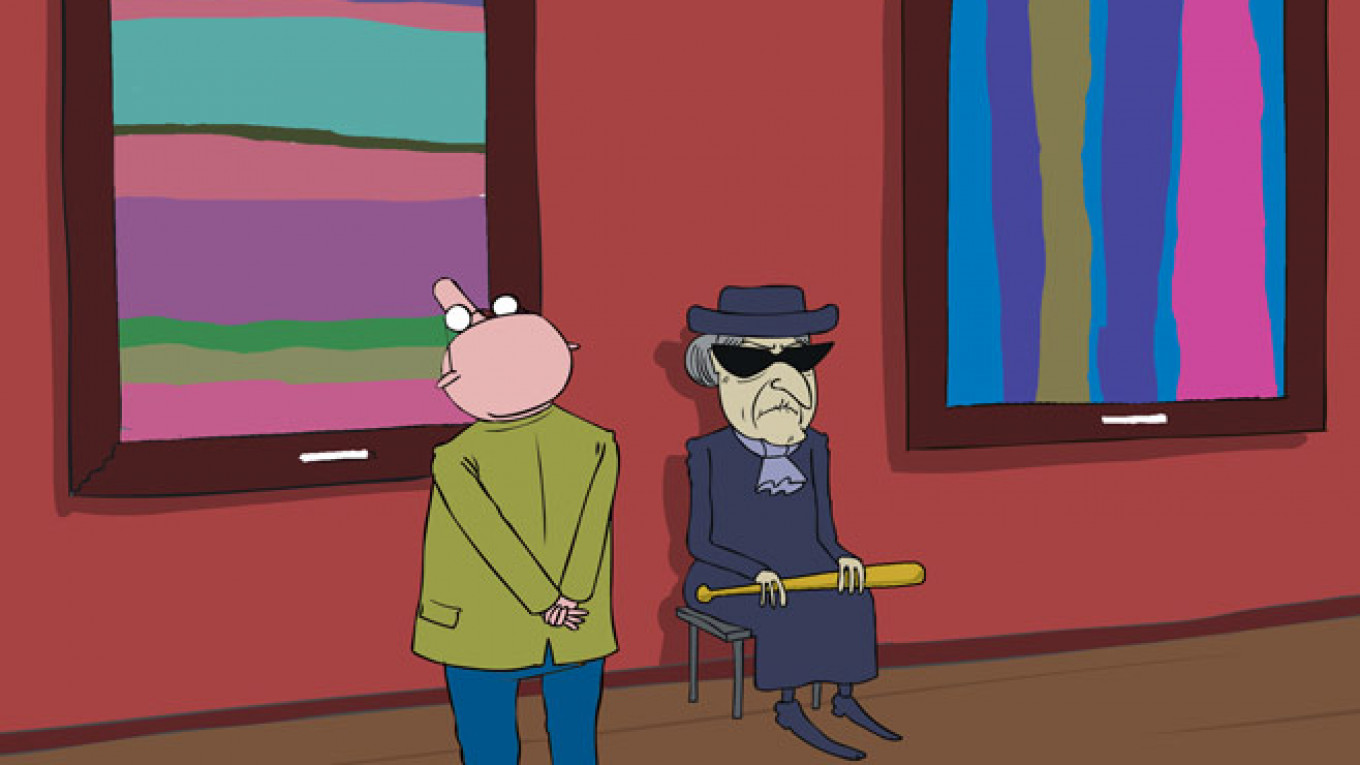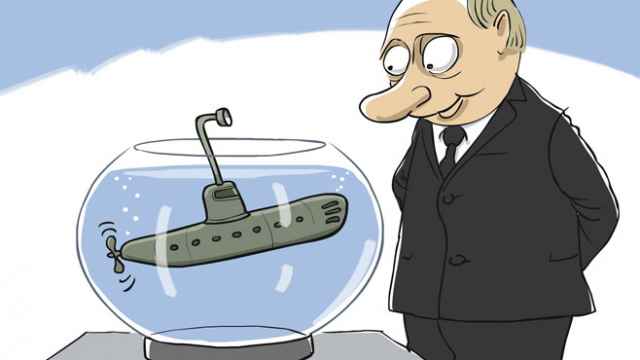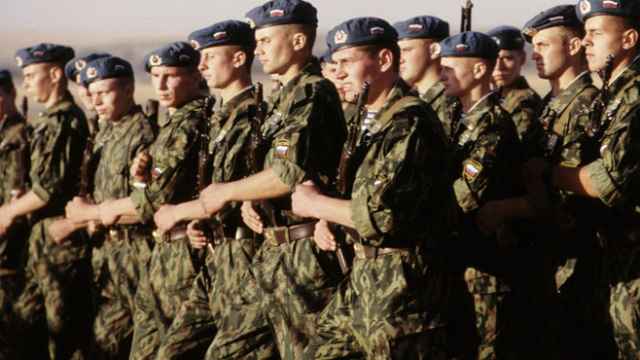Russia's museums are unexpectedly at the heart of a growing problem with Russia's policing and security in society.
The police's Extra-Departmental Guard (VO) hires out officers to provide security to a range of clients, from bank cash vans to sports venues. They are by no means the cheapest providers of private security, but are considered to be the best. After all, their officers are all sworn law enforcement personnel — with all the powers, firepower and duties that entails.
Of course, that also makes them more expensive than many private security firms, known generically by the acronym ChOP. For some institutions, like many federal museums, this was not a factor: the police provided security for a relatively nominal fee.
However, austerity is biting everywhere, even in the formidable Interior Ministry (MVD). A 10 percent cut in its payroll will see it shed at least 100,000 staff. In some cases, currently vacant positions will simply be closed or frozen: hiring was suspended in February. As far as possible, the ministry will also try to make efficiency savings and dispense with administrative, "back office" posts.
Ultimately, though, it will also mean cutting some regular police. Given that Interior Minister Vladimir Kolokoltsev is determined to try and protect front-line services — during a recent trip to Irkutsk he said that it was a "position of principle" to try and avoid losing even a single street police officer — then something has to give.
The Extra-Departmental Guard is one area where the ministry spies scope for economies, with perhaps 40,000 positions in play. According to head of the department of cultural heritage at the Culture Ministry, Mikhail Bryzgalov, from Nov. 1, of the 46 federal museums currently getting a police guard, 29 will lose them, including even the State Hermitage Museum in St. Petersburg.
Unable in the main to pay the VO's commercial rates, museums are instead having to turn to the still expensive ChOPs, even though their officers have no power of arrest and have often proven to be unprofessional or downright criminal themselves.
This may seem relatively trivial. Most museums around the world, after all, make do with private guards or their own, unarmed security, and there are ChOPs with good records and competent and honest staff.
However, what this does do is illustrate some wider issues relating to policing and security in Russia.
First of all, the crisis is real. This is not a regime which lightly shrinks any element of its security apparatus (although apparently the more muscular OMON riot police and Interior Troops are being protected), and yet the 10 percent cut is being applied even to the Federal Security Service.
Second, this is not a heavily policed state. There is a commonly-reported statistic that Russia has one of the highest police-to-population ratios in the world, but this is based on a fundamental misunderstanding of the MVD, counting as street cops administrators wearing uniforms but in jobs done by civilians in most countries.
Instead, Russia's ratio is around that of the Netherlands, hardly anyone's idea of an oppressive police state. Considering the size of the country and the range of challenges they face, this is a thinly-stretched force.
The cuts may help slim down a bloated MVD bureaucracy and excessive paperwork demands on officers. However, despite Kolokoltsev's best efforts, it is inevitable that they will also have an impact on the ground, potentially undermining some of the good work done in recent years. After all, since reforms in 2011, trust in the police has risen from 32.9 to 47.2 percent and satisfaction with their work from 32.8 to 46.3 percent.
In that context, is Russia facing a slide back to the kind of reliance on individual, local, or collective self-defense that was such a feature of the 1990s? Let's be clear: there is no suggestion or likelihood of a return to the kind of anarchic lawlessness of that miserable decade. However, if the state continues to retrench in a way which protects its own interests, but not those of wider society, then this is inevitable.
A growing market for private security, with demands they get more powers and bigger guns? Since the start of 2015, the industry is one of the few in Russia continuing to register growth.
A renewed interest in vigilantism? Perhaps just as a PR stunt, but in May United Russia announced a 'Safe Capital' initiative in Moscow with volunteers patrolling high-crime neighborhoods once a week.
Following a recent attack on an exhibit in Moscow's Manezh by a gang of Orthodox extremist vigilantes, Hermitage director Mikhail Piotrovsky called for museums "immediately to organize in-house training on protecting the state of their exhibitions." Ticket sellers and docents ought to be able to spot and tackle criminals and vandals. Other museums are in talks with ChOPs to hire security officers, even armed ones.
Are Russia's museums pointing the way for society as a whole?
Mark Galeotti is professor of global affairs at New York University.
A Message from The Moscow Times:
Dear readers,
We are facing unprecedented challenges. Russia's Prosecutor General's Office has designated The Moscow Times as an "undesirable" organization, criminalizing our work and putting our staff at risk of prosecution. This follows our earlier unjust labeling as a "foreign agent."
These actions are direct attempts to silence independent journalism in Russia. The authorities claim our work "discredits the decisions of the Russian leadership." We see things differently: we strive to provide accurate, unbiased reporting on Russia.
We, the journalists of The Moscow Times, refuse to be silenced. But to continue our work, we need your help.
Your support, no matter how small, makes a world of difference. If you can, please support us monthly starting from just $2. It's quick to set up, and every contribution makes a significant impact.
By supporting The Moscow Times, you're defending open, independent journalism in the face of repression. Thank you for standing with us.
Remind me later.








